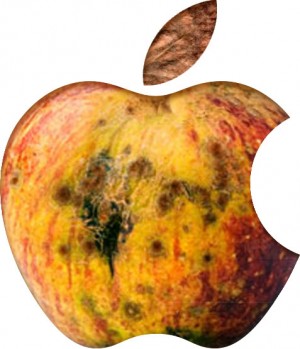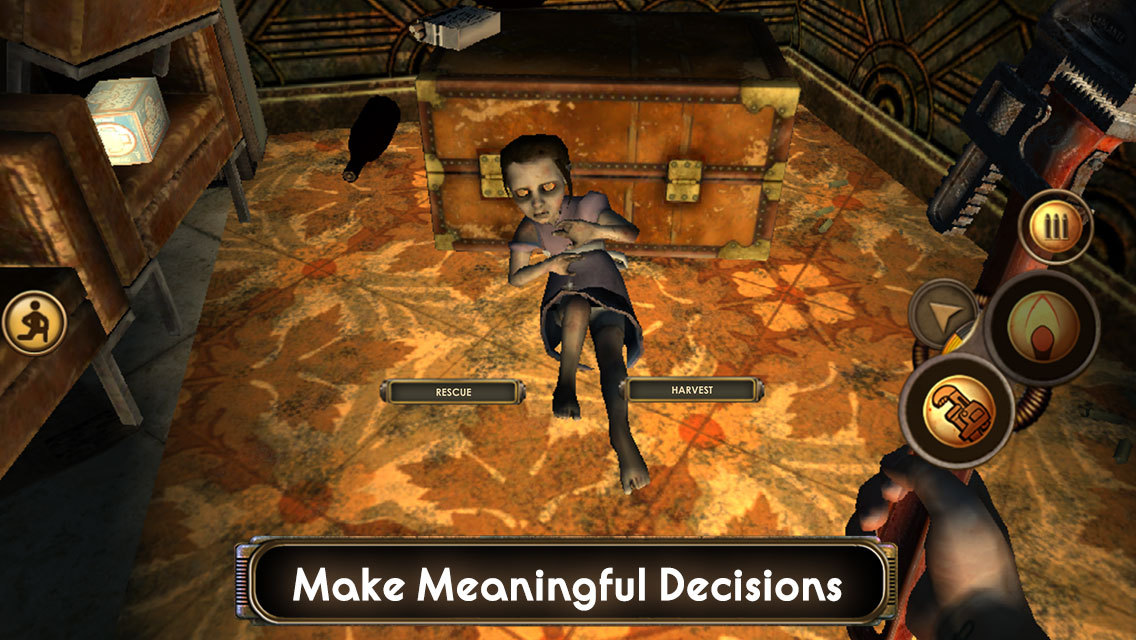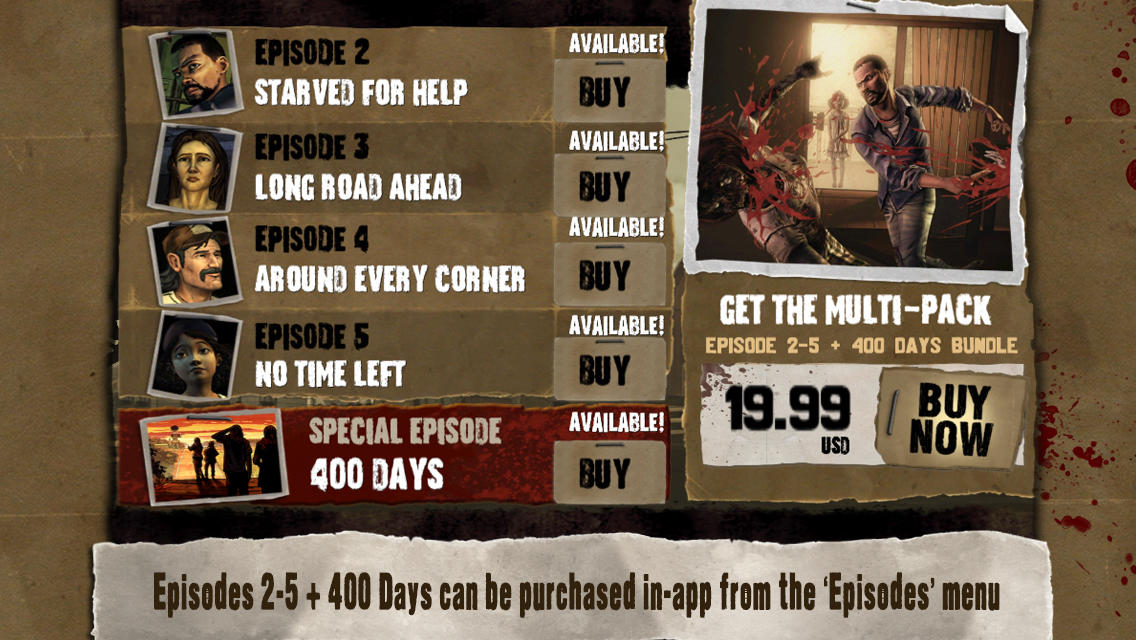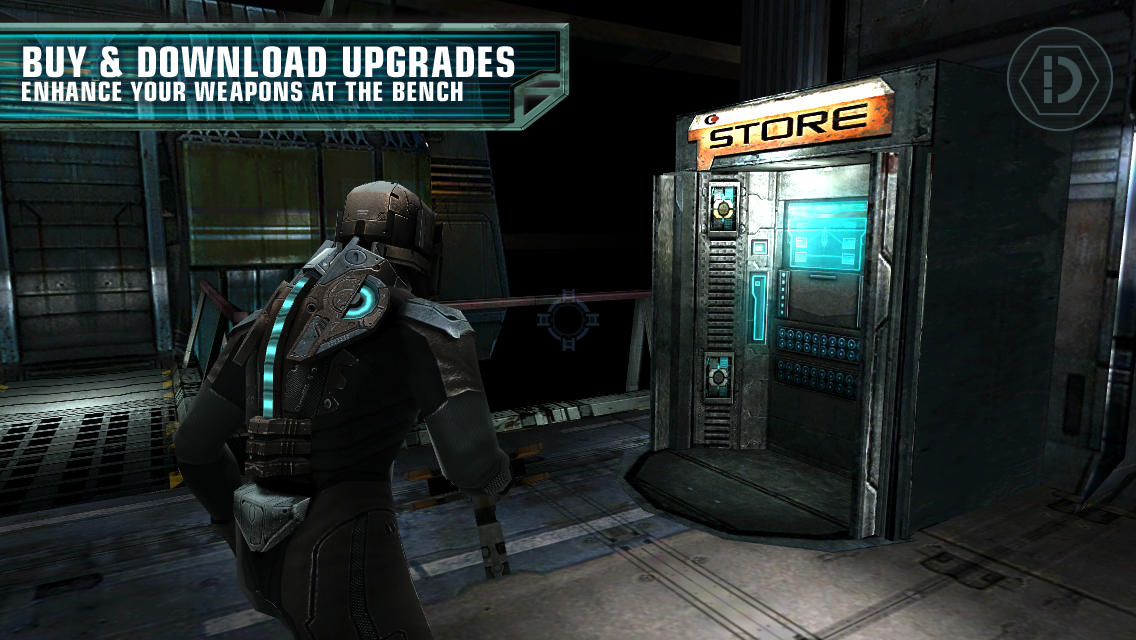 Whether you ascribe it to deliberate planning, serendipity, or something in between, Apple is now the holder of one of the largest gaming platforms in the world. It’s an unexpected turn for a company that always seemed to place a low priority on video games, and the company’s inexperience has come through in a variety of ways over the years, including treating mature gaming content differently from other types of media, not offering the ability to maintain save files separately from the games themselves, and placing odd and arbitrary restrictions on developers at a moment’s notice. These quirks are generally forgiven due to the sheer amount and variety of content on offer on the App Store. In short, for most players, these aren’t deal-breakers. The latest test of customer resolve has come in the form of high-profile apps being removed not just from the front-facing App Store, but also from the purchase histories of customers who paid for them. I believe that unless this issue is satisfactorily addressed, by either Apple or their partners, the very health of the ecosystem will be at significant risk.
Whether you ascribe it to deliberate planning, serendipity, or something in between, Apple is now the holder of one of the largest gaming platforms in the world. It’s an unexpected turn for a company that always seemed to place a low priority on video games, and the company’s inexperience has come through in a variety of ways over the years, including treating mature gaming content differently from other types of media, not offering the ability to maintain save files separately from the games themselves, and placing odd and arbitrary restrictions on developers at a moment’s notice. These quirks are generally forgiven due to the sheer amount and variety of content on offer on the App Store. In short, for most players, these aren’t deal-breakers. The latest test of customer resolve has come in the form of high-profile apps being removed not just from the front-facing App Store, but also from the purchase histories of customers who paid for them. I believe that unless this issue is satisfactorily addressed, by either Apple or their partners, the very health of the ecosystem will be at significant risk.
Let’s briefly recap the situation. A couple of weeks ago, it was noticed by a member of the TouchArcade forums that 2K Games’s Bioshock, having been pulled from the App Store several months prior, had now been removed from the purchase history section. This meant that even those who had bought the game and were running hardware and software capable of playing the game could not access it anymore if it wasn’t already installed on their device. Although it’s a fairly recent game, it’s old enough that it was well past the refund period for most customers. 2K directed people to Apple for refunds, and Apple generally offered either nothing or an equally ill-fitting response of a handful of iTunes songs. A couple of days after that situation became known to the public, 2K Games confirmed directly to the media that Bioshock would be returning at a future date. No explanation for the removal from customer purchase history was provided in spite of media requests.

While reviewing comments on those pieces yesterday, I noticed that someone had posted about the long-broken Ghost Trick, which was removed from the storefront several months ago by its publisher, Capcom, following a misfired update patch. The commenter said the game was removed from purchase histories, and sure enough it was. A news post was written about the situation, and in those comments, someone indicated that Electronic Arts’s Dead Space was now missing from their purchase history. That was enough to prompt more searching on my part, which turned up many more removed titles from various publishers including Electronic Arts and SEGA. Complicating the issue, a tweet from a reader pointed out that the majority of Telltale’s games had been removed from the store front. Although still accessible via purchase history, pulled games can no longer access IAP, even to restore already-purchased items. It’s highly likely Telltale’s games are pulled pending a fix, but it still points toward a big problem in the App Store.
It seems that not only can customers not expect updates for a reasonable period of time post-release, they can have all evidence of the game wiped from their download lists without notice. Games that use IAP to unlock a portion or remainder of the game become totally inaccessible after they’re pulled from the storefront. This is all spelled out in the end-user license agreements, of course, but until recently, such descriptions of games as services rather than products seemed more like a legal safety net than something expressing the actual reality of the market. Between relatively new games like Monster Hunter Freedom Unite breaking with no plans for a fix, games being pulled from purchase histories without warning, and games dependent on IAP being rendered non-functional by being pulled from the storefront, it feels like a lot of customers are starting to wake up to what appears to be the real message from publishers and Apple alike: these games are temporary, no more permanent than a cookie or potato chip, and we are merely renting them for an undetermined and completely arbitrary period of time.

If that’s the deal, so be it, but I don’t believe that’s what most customers thought they were getting into when they hit that “buy" button. And while legally, all behinds appear to be covered, when you reach a point where you’re justifying things by the small print in the EULA, it’s safe to say you’ve got a customer service issue on your hands. Unhappy customers, particularly those who no longer feel secure in their purchases, are customers who are less likely to invest further into the ecosystem. Two weeks ago, that was 2K Games’s problem. Yesterday, it was Capcom’s problem. But with today’s discoveries, it’s clear that above all else, this is Apple’s problem. While they are one of the dominating forces in the market, they aren’t without competition. They certainly aren’t driving a monopoly to the point that they should be shrugging off the idea that customers are feeling ripped off. Apple likes to wash their hands of this kind of thing, but as the platform holder, it’s in their best interests to make sure people are feeling good about investing into the platform.
I believe Apple could do a few things to help the situation greatly. First of all, I believe that barring extraordinary circumstances like serious security issues, apps should never be removed from purchase history. Include it in the developer agreements. Virtually every other gaming platform holder has this system in place and third parties appear to agree to it on those platforms. For Apple’s part, they shouldn’t remove apps from purchase histories just because developer licenses have expired. Again, this is almost never an issue on other platforms, and there’s no reason it has to be on iOS, either. Developers and publishers should have the freedom to pull their games from the storefront, and I don’t believe they should be obligated to update those games forever, but customers should always have the opportunity to download them again, even if they don’t work with current hardware and iOS versions. One might reply here that it would be troublesome for the companies to have to do support for customers who download these non-functioning apps in the future. It’s a reasonable objection, but I think it could be largely addressed with a clear warning label in the history tab.

Related to this, I feel very strongly that Apple needs to make purchased IAP available even after a game has been pulled from the storefront. I understand that without a license or the publisher’s go-ahead, Apple can’t be collecting money or doing business, but already paid-for IAP should be accessible to those who bought it. Apple should make the necessary changes to the developer agreements to allow for this. I’m certain they could make it happen if they were motivated to do so. Due to the economics of the App Store, more and more publishers are pursuing a shareware-style model wherein the initial download is free, with the remainder unlocked by IAP. It will be a loss for customers and the medium alike when these games are eventually pulled and rendered non-functional. The system as it stands now offers no peace of mind for anyone but those who treat games and IAPs as consumables. Perhaps that’s the kind of platform Apple would like to run, but I’d like to believe that they can see the commercial value, if nothing else, in presenting a friendly storefront to all kinds of players and customers.
If Apple were really interested in going above and beyond, I think everyone could also benefit from them taking a more proactive approach to iOS version updates. The beta period as it stands is certainly reasonable enough that it’s hard to complain too much, but imagine if Apple were to reach out to major publishers to ensure smooth transitions for high-profile games like Monster Hunter Freedom Unite or Chaos Rings 3. This would require an investment, but it would also avoid the bad publicity for the platform that comes with games like these breaking each year. And yes, this should be on the publishers themselves, but sometimes the platform holder has to be the bigger person when the platform’s image and customer satisfaction are at stake.

As for the publishers themselves, it’s pretty regrettable. Indie developers living from ramen pack to ramen pack will bend over backwards to support 100 customers, while the bigger cats will write off 100,000 at the apparent blink of an eye. Perhaps that’s good for business, but I fail to see any reasonable defense for removing offline games from purchase histories. If I were cynical, I would suggest that were hoping to nudge fans of certain franchises towards newer, more profitable versions. More likely, they simply don’t want to deal with the support headaches and PR issues broken apps bring. Similar to what I said above, the latter issue could be mitigated with a large disclaimer in the purchase history section, and by ensuring a reasonable period of support after a game has launched. If it’s the former case, I can only suggest that it’s better for a publisher in the long run to motivate player migration by goodwill rather than trying to drag them by the scruffs of their necks. Brand loyalty can be very valuable, and it’s both hard won and easily lost.
At a bare minimum, games removed from purchase histories should have a no-questions-asked refund policy attached to them. People still won’t be happy, but at least they won’t feel cheated. At present, the best you can really hope for if a game is past the regular refund period, as most removed apps will be, is a few free song vouchers on iTunes. Apple should be issuing App Store credit if refunding cash is a problem, as that at least could be used to purchase games.

If no one steps up to address this issue, customers are going to feel less and less secure with their purchases, particularly with regards to relatively high-priced offerings and games that can only be activated via IAP. Those games are already facing a lot of market challenges, and a shake-up of customer confidence could be enough to kill them. While that does leave the lucrative free-to-play market and IAP consumables largely intact, it makes for a considerably less diverse market on the whole, a weakness that a competitor could certainly take advantage of. I’m not going to pretend the hardcore gamer demographic can swing the market, but it’s neither a small group nor are they the only ones likely to feel badly about this kind of situation. Don’t give people reasons to shop at your competitor if you can avoid it. That goes for the publishers as well as Apple.
More selfishly, situations like these are real problems for media outlets like TouchArcade. Things have reached a point where a disclaimer is almost needed in reviews for apps from the big publishers, who seem to be oddly more prone to this behavior than the smaller companies. How can we confidently recommend the latest high-priced Capcom release with this situation becoming more frequent? What is the point of curating and evaluating content that might be gone by the next time the leaves fall from the trees? In spite of a few hiccups here and there, I can still feel good about telling people to pick up the latest indie title, but it’s a lot harder to suggest picking up something from a big publisher unless the reader is pretty clear it might effectively only be a rental. I know I’m not the only member of the mobile media wrestling with this subject, as well.

This is my appeal, to both Apple and third-party publishers. This kind of behavior towards customers is unacceptable, and it’s going to cost you in good faith and revenue alike if it continues unabated. A lack of experience or interest in the market only excuses so much, and with more options than ever before in gaming today for players, even if you’re big today, that doesn’t you mean you always will be. This destruction of customer confidence is bad for the platform and terrible for players. I can’t possibly imagine how the result won’t be damaging to the business for everyone in the ecosystem.
To the players, my suggestion is to make your voices heard. Communicate your dissatisfaction to the companies, Apple included. If we are going to be playing in their walled garden, they can at least do us the courtesy of putting out fires. You should treat expensive games from the big publishers like the rentals the companies themselves are treating them as. And no matter how much of a pain in the neck it is, back up those apps. I used to think of that kind of behavior as overly paranoid, but apparently I was overly trusting. Above all, keep supporting the developers and publishers that do right by you. This is a great platform with more great gaming experiences on it than I can count. Let’s not let a few bad eggs spoil the whole carton when we can just toss those eggs out instead.
Edit: Capcom and Telltale have both responded to this story, see follow-up story here.
Edit 2: Although I stand by the spirit of this editorial and much of its content, I made some incorrect assumptions as to the source of the purchase history issue. Third-party publishers were as unaware of the situation as the customers were. Further information can be found here and here.